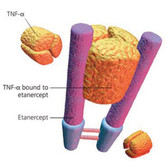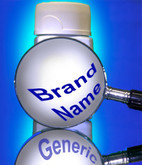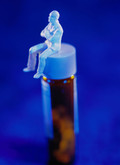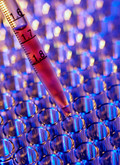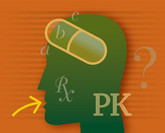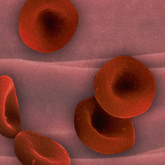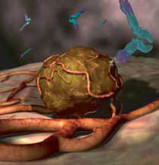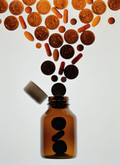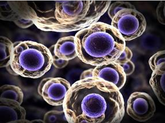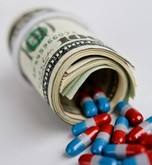Biosimilars/Research
Positive phase III results for etanercept biosimilar
On 9 November 2015, biopharmaceutical specialists Coherus and Baxalta (a spin-off company from Baxter International) announced positive results from a phase III study of its etanercept biosimilar (CHS-0214).
Biosimilar naming conventions around the world
Naming conventions from around the world was one of the topics investigated in a study by researchers from the Tufts Center for the Study of Drug Development (Tufts CSDD) [1].
Positive phase III results for Samsung Bioepis biosimilars
Results of phase III clinical studies of candidate etanercept biosimilar SB4 infliximab biosimilar SB2 and adalimumab biosimilar SB5 have all met their primary endpoints, according to an announcement on 7 November 2015 by Samsung Bioepis (a Biogen and Samsung joint venture).
Biosimilars and interchangeability
In a study by researchers from the Tufts Center for the Study of Drug Development (Tufts CSDD) the question of interchangeability around the world was one of the topics investigated [1].
Economic considerations for rheumatoid arthritis biosimilars
In the paper by Gulácsi et al. [1], the authors stated that biosimilars have the potential to reduce costs and increase patient access to biologicals in the treatment of rheumatoid arthritis (RA) and other chronic inflammatory rheumatic and bowel diseases.
Non-originator low molecular weight heparins: generics or biosimilars
First developed in the 1980s, low molecular weight heparins (LMWHs) are complex anticoagulants derived from porcine intestinal mucosa and are used in the treatment of deep vein thrombosis and pulmonary embolism. Heparin sodium’s anticoagulant activity is mainly governed by its ability to bind to the serine protease inhibitor antithrombin (AT). In this sense, heparin sodium functions as a cofactor for AT by modifying its conformation, thereby accelerating the inactivation of clotting factors.
Positive phase I results for adalimumab biosimilar
In an announcement on 28 October 2015, biopharmaceutical specialist Boehringer Ingelheim Pharmaceuticals (Boehringer Ingelheim) claimed that results from a phase I study of its adalimumab biosimilar (BI 695501) had ‘demonstrated pharmacokinetic bioequivalence’ to Humira (adalimumab).
Biosimilar naming and AE reporting
How will biosimilar naming affect the ability to attribute adverse events (AEs) to a particular product? This is a question researchers from the Tufts Center for the Study of Drug Development (Tufts CSDD) sought to answer [1].
Rituximab biosimilar claimed similar pharmacokinetics to originator
A phase I/II study of Pfizer’s rituximab biosimilar candidate PF-05280586 has shown similar pharmacokinetic (PK) properties, according to Jacobs and co-authors [1].
Biosimilars use in Italy increasing
A study of the use of biosimilars in four large Italian geographic areas has found that the use of biosimilar erythropoiesis-stimulating agents (ESAs), especially in naïve patients, increased significantly during the years 2009–2013 [1].
Positive phase I results for pegfilgrastim biosimilar
US-based biosimilars developer Coherus BioSciences (Coherus) announced on 1 October 2015 that results from a phase I study of its pegfilgrastim biosimilar (CHS‑1701) had met its primary endpoint.
Answers to questions about anti-TNF biosimilars
While the potential pharmacoeconomic benefits of cost-effective biosimilars seem clear, several issues have been raised regarding, for example, the definition of biosimilarity and the validity of indication extrapolation, as well as the ‘switchability’ and relative immunogenicity of biosimilars and their reference drugs. In a review by Isaacs and co-authors, these questions with reference to CT-P13 (Remsima, Inflectra), a biosimilar of the anti-tumour necrosis factor (TNF) monoclonal antibody infliximab (Remicade) were discussed [1].
Biosimilar epoetin-α as effective as originator in anaemia treatment
A study by researchers in Italy has concluded that biosimilar epoetin‑α appears to be comparable to originator epoetin‑α plus liposomal iron (Sideral), vitamin B12 and folates in terms of efficacy and safety for the treatment of refractory anaemia [1].
Positive phase III results for bevacizumab biosimilar
Results of a phase III trial have demonstrated the similarity of partners Amgen and Allergan’s biosimilar bevacizumab candidate (ABP 215) to Avastin in patients with advanced non-small cell lung cancer (NSCLC).
Pharmacoeconomic modelling of biosimilars in the US
There are many challenges and uncertainties associated with the introduction of biosimilars to the US. To try and address these, authors from the Partnership for Health Analytic Research developed a conceptual framework to provide guidance in modelling biosimilars in the US setting [1].
Etanar as effective as adalimumab and infliximab in rheumatoid arthritis
A study of Etanar – an etanercept similar biotherapeutic product – has shown that it is as effective as adalimumab and infliximab in a cohort of patients with rheumatoid arthritis in a real-life setting [1].
Non-originator bevacizumab candidate non-inferior to Avastin
Results of a phase III clinical study of Biocad’s non-originator bevacizumab candidate BCD-021 demonstrated ‘equivalence’ compared to the originator biological (Avastin) in patients with non-small cell lung cancer (NSCLC) [1].
Overcoming hurdles to biosimilars cost savings in the US
The US approved its first biosimilar, Zarxio (filgrastim-sndz), on 6 March 2015 [1]. But how can the country overcome hurdles to the cost savings that can be achieved from these drugs? That is a question Sarpatwari and co-authors have tried to answer [2].
Safety of filgrastim biosimilars following stem-cell transplantation
The safety of granulocyte colony-stimulating factor (G-CSF; filgrastim) biosimilars was compared with that of the originator, Neupogen (Amgen), in a retrospective, single-institution study. Simona Bassi and co-authors at the Guglielmo da Saliceto Hospital in Piacenza, Italy, analysed data from patients with lymphoma or myeloma who had undergone autologous haematopoietic stem cell transplantation (HSCT) at the Guglielmo da Saliceto Hospital.
Biosimilars in the US: hurdles to cost savings
In light of the recent approval of the first biosimilar in the US, Zarxio (filgrastim-sndz), [1], Sarpatwari and co-authors look at the hurdles to cost savings for biosimilars in the US [2].
